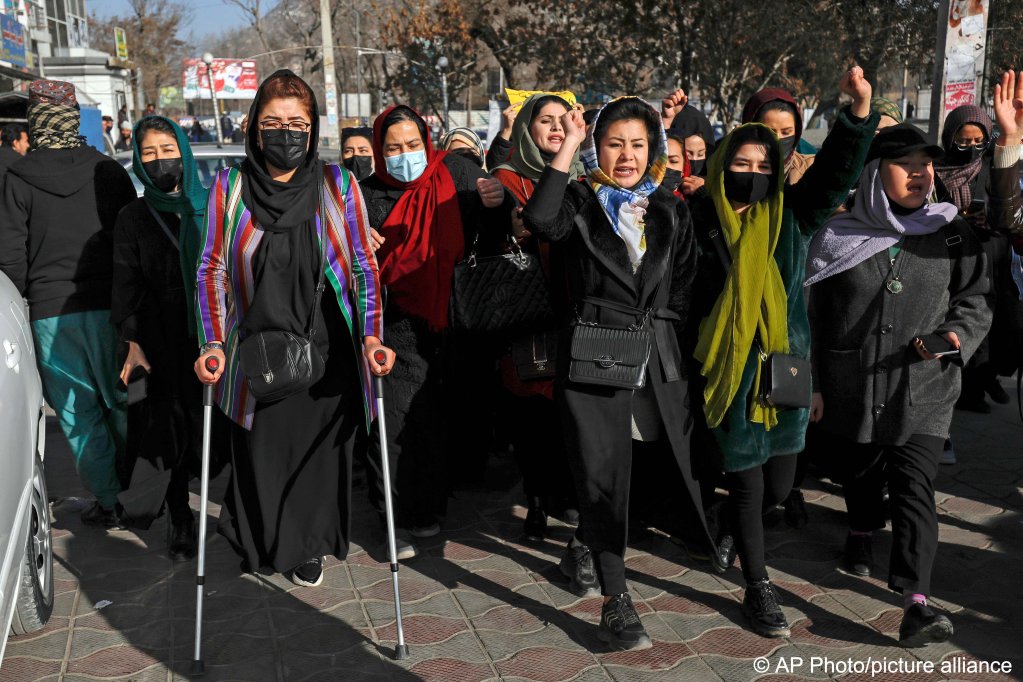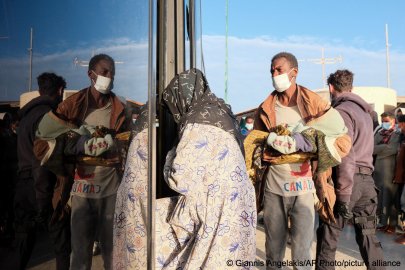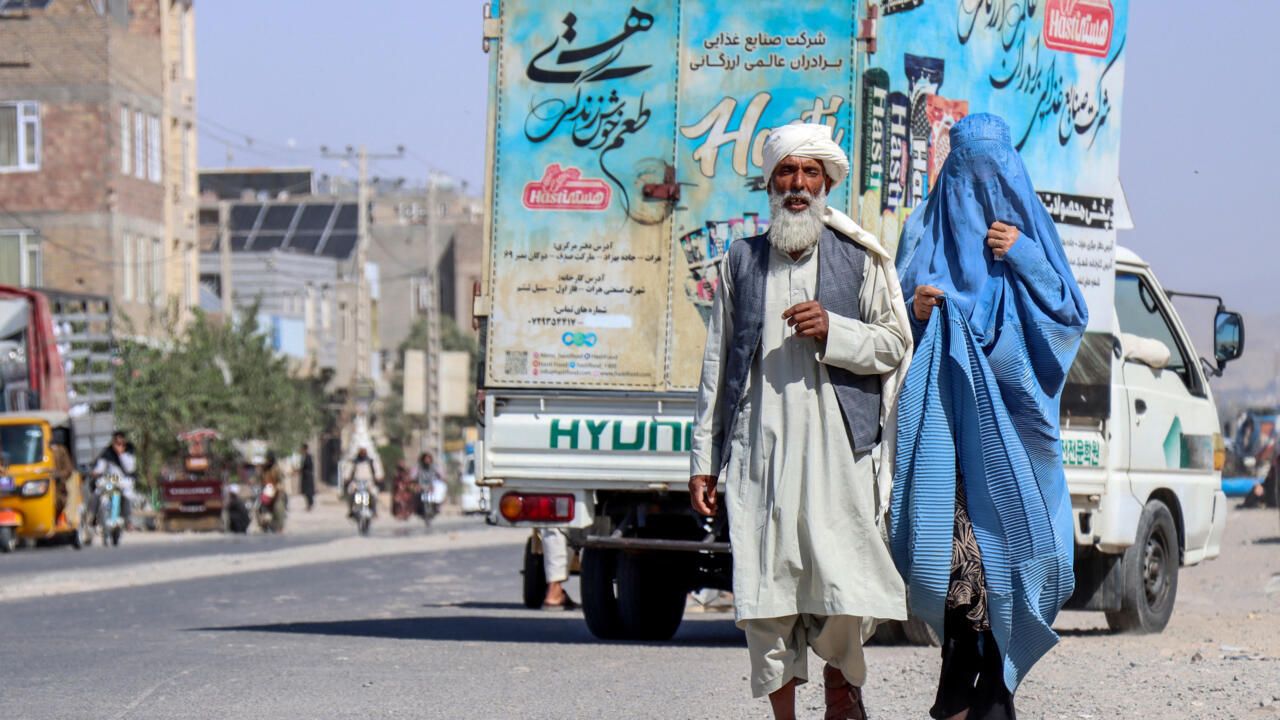Empowering women in Afghanistan: An Afghan migrant in Greece offers online coding classes
Source: InfoMigrants: reliable and verified news for migrants – InfoMigrants
Mortesa Jaafari, who came to Greece as a teenager, founded a computer programming company called Afghan Geeks. Through free coding courses for women in Afghanistan, he aims to provide a window of opportunity for those increasingly suppressed under the Taliban regime.
This article was originally published in Dari.
Mortesa Jaafari, who is 25 years old, arrived in Greece as an unaccompanied minor. Like many other Afghan migrants, he traveled through Iran and Turkey after leaving Afghanistan, before arriving in Greece.
Speaking to InfoMigrants on the phone, Jaafari is reluctant to provide details about why he left Afghanistan or what he experienced during the journey. He only says he was forced to leave his country because of some difficulties, and that now he is worried about the future of his siblings, especially his sister.
Because all doors are closed to them, he says.
“My sisters tried to study as far as possible. Education is like brightness in the house. They tried to participate in educational courses. But the Taliban took this possibility away. Now there are no educational possibilities (for girls) anymore. None of my sisters goes to school or university, and I’m really worried about them.”
From no experience to giving courses
After Jaafari arrived in Greece and was living in a shelter in Athens, he was helped by a teacher to enroll in a computer coding course, and learned Greek and English, starting from scratch. He earned a certificate only months later. Today, he is the founder of a computer programming company and organizes computer coding courses for women in Afghanistan — to give something back to the community, and to empower women, he explains.
“After the fall of the last government, life in Afghanistan turned upside down. As I spoke to the people whom I knew, they said how sad the situation was. I remember one of the girls in my family was studying midwifery, one of the few possibilities remaining in Afghanistan. But the Taliban banned education in health institutions for girls. Midwifery was one of the academic subjects that was taught there.”
The education ban on women is far-reaching. In 2022, all girls were banned from secondary education beyond year 6. And in December 2022, the Taliban issued a nationwide order suspending university education for all female students “until further notice.” According to UN Women’s report, 78 percent of young Afghan women are not in education, employment or training — nearly four times the rate for Afghan men.
“The last door to women was closed. That’s when I decided to help women in Afghanistan,” Jaafari says.

He also says he was thankful to those who helped him in his first years after arriving in Greece. “When I came to Europe, there were organizations that helped me. Because as a teenager, I was in a vulnerable situation. Since then, this mentality developed in my mind that I have to do my part too and help others, both the Greek society and my compatriots. If these organizations and these people hadn’t helped me, I couldn’t have achieved all this.”
Early years
But before he got to where he is today, it was a long and difficult way. In one interview with AP, he said: “I had no idea about English. No idea, like zero zero,” he said. “And I was trying at the same time to learn Greek, learn English, and then also learn computer. It was super difficult for me.”
He also faced some difficulties with bureaucracy. “As I arrived in Greece as a teenager, I was transferred to a migration camp in Athens, where I was able to attend school in grades 10 and 11. But then I had to leave the camp before my 18th birthday, while the school year continued until June of that year.”
By remembering that time, he says, “I had to go through a lot. Officials told me constantly that I had to move out there. But eventually and after many difficulties, they gave me six months to live in that camp. Getting a diploma was very important for me.”
It paid off, as Jaafari began an internship in an English company right after graduation and also got a job at a Greek company where he worked for a year and a half after high school.
‘Afghan geeks’
The idea to offer online courses for women in his home country came to him soon after. “At the beginning, I tried to teach women through YouTube. But I had moderate success. So I established Afghan Geeks to offer software professional services as well as educational and mentorship programs for Afghan women.”
He started offering coding courses last December. Jafari now has 28 female students in Afghanistan in three classes: beginner, intermediate and advanced.
On the website of the company, it says: “We combine world-class software development with a powerful social mission. Every project we build directly supports education and employment opportunities for Afghan women in tech.”
Aside from teaching, Afghan Geeks also mentors the students in finding online internships and jobs using their new skills. Some are even offered job opportunities via the company. However, he adds that “of course, we can not do that for a lot of them. Those processes need time.”

How can women in Afghanistan use their acquired skills?
Jaafari says that online education is one of the few possibilities remaining for women in Afghanistan to build their professional futures. “Because of the extensive restrictions on access to education and the job market for women in Afghanistan, online solutions have become very important.”
By learning programming and other technical skills, they might find remote work, maybe even launch small businesses, and make a living, he says.
“We live in the world of technologies. We must strive to acquire knowledge. I learned programming. Artificial intelligence has brought about many changes. … The knowledge that these women acquire creates a great space of work opportunities for them.”

Jaafari: ‘Employers in foreign countries must support women’
He emphasizes the necessity of comprehensive support for Afghan women and adds:
“I appeal to employers in foreign countries to support (Afghan) women. Because they are vulnerable and need support. Of course, this is also true of men in Afghanistan, who are facing a lot of problems too.”
Jaafari says the positive reactions he gets from the students give him motivation. “The Satisfaction and pleasure of these women give me the motivation to continue my work. They often appreciate it. But I tell them: you must thank yourself, be proud of yourselves. Because you were resistant in difficult situations. I’m only here to accompany you until you can find your own way.”
Jaafari had said in an interview with AP that he never saw the faces of his students. He asks how they are and what the situation is in Afghanistan, “but I’ve never asked them to open their camera or to share their profile, to share the image. I’ve never done that. I don’t want to do it, because I respect their culture, their choice.”
Read Also
Germany: Sharp rise in asylum claims by Afghan women
The original article: belongs to InfoMigrants: reliable and verified news for migrants – InfoMigrants .




